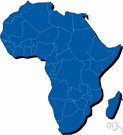Man·de
(män′dā′)n. pl. Mande or Man·des
1. A branch of the Niger-Congo language family, spoken in the upper Niger River valley.
2. A member of a Mande-speaking people. In both senses also called Mandingo.
[Ultimately from Mandiŋ, Mandeŋ, Mandẽ, the traditional name for the Mande homeland in various Mande languages.]
American Heritage® Dictionary of the English Language, Fifth Edition. Copyright © 2016 by Houghton Mifflin Harcourt Publishing Company. Published by Houghton Mifflin Harcourt Publishing Company. All rights reserved.
Mande
(ˈmɑːndeɪ)n, pl -de or -des
(Languages) a group of African languages, a branch of the Niger-Congo family, spoken chiefly in Mali, Guinea, and Sierra Leone
adj
(Languages) of or relating to this group of languages
Collins English Dictionary – Complete and Unabridged, 12th Edition 2014 © HarperCollins Publishers 1991, 1994, 1998, 2000, 2003, 2006, 2007, 2009, 2011, 2014
Man•de
(ˈmɑn deɪ)n., pl. -des, (esp. collectively) -de.
1. a language family of W Africa, a branch of the Niger-Congo family, primarily spoken in Mali, Guinea, Sierra Leone, Liberia, and the Ivory Coast.
2. a member of any of the peoples who speak these languages.
Random House Kernerman Webster's College Dictionary, © 2010 K Dictionaries Ltd. Copyright 2005, 1997, 1991 by Random House, Inc. All rights reserved.
ThesaurusAntonymsRelated WordsSynonymsLegend:
| Noun | 1. |  Mande - a group of African languages in the Niger-Congo group spoken from Senegal east as far as the Ivory Coast Mande - a group of African languages in the Niger-Congo group spoken from Senegal east as far as the Ivory CoastNiger-Congo - a family of African language spoken in west Africa |
Based on WordNet 3.0, Farlex clipart collection. © 2003-2012 Princeton University, Farlex Inc.